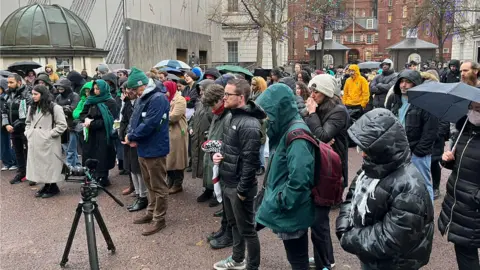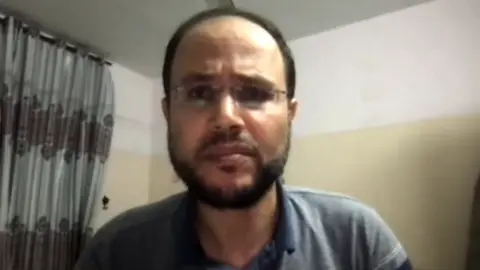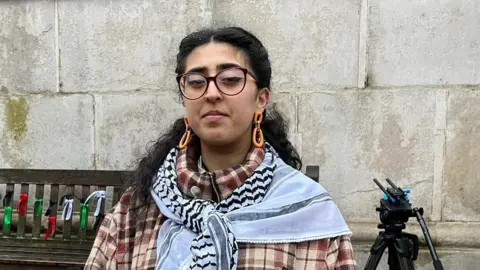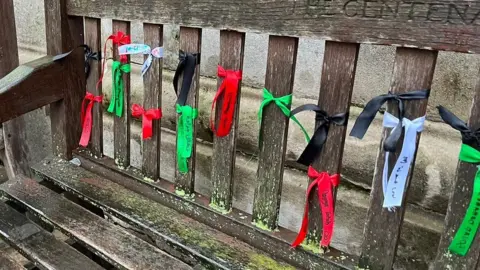Refaat Alareer: UCL urged to issue statement on ex student's death
 BBC
BBCStudents and staff at a London university have expressed their frustration about it not issuing a statement after a former student died.
Dr Refaat Alareer, who taught English literature at the Islamic University in Gaza, studied at University College London (UCL) in 2007.
The writer and literary scholar was killed in an air strike in Gaza.
A UCL spokesperson said: "We are working to support all those affected by this."
A vigil organised by UCL Palestine solidarity, a network of staff and students at UCL, was held on Wednesday afternoon.
"Dr Refaat is beloved by a lot of people in the academic community," Amna Ghaffar, a UCL student from east London told BBC London.
"He was a UCL alumna and we feel the institution is not recognising or acknowledging or paying respect to him."
Since his death, Dr Alareer's final poem "If I must die" has been shared hundreds of thousands of times online.

"He wanted to teach English to Palestinians so that their voices could be heard beyond the borders of their country," Ms Ghaffar, who is from Pakistan, said.
"He was a voice for the voiceless."

BBC London reporter Alpa Patel, who was at the vigil, said students of many different nationalities including Turkish, Egyptian and British, cried and held hands during the poetry reading.
The poem was read out in different languages, including Greek, to reflect the diversity of the university, and to show how Dr Alareer had touched the lives of many people, she added.
Rana, from north London and who was also at the vigil, said Dr Alareer was a "beloved lecturer".
"His students loved him, adored him, and people have read his work," she said.
"I think he meant a lot to all of us.
"He's not the first cultural figure that has been killed by Israeli forces.
"This administration of the university is still refusing to condemn his killing, to issue a statement."

Dr Alareer's father-in-law said that the academic died along with his brother and sister and four of her children on 6 December.
He had declined to leave northern Gaza following the start of Israeli operations in the area.
A UCL spokesperson said: "The ongoing violence and suffering in Gaza and Israel is terribly distressing and we recognise the deep impact it has had on UCL's community, many of whom are directly affected and greatly concerned.
"We are working to support all those affected by this."

Listen to the best of BBC Radio London on Sounds and follow BBC London on Facebook, X and Instagram. Send your story ideas to [email protected]
